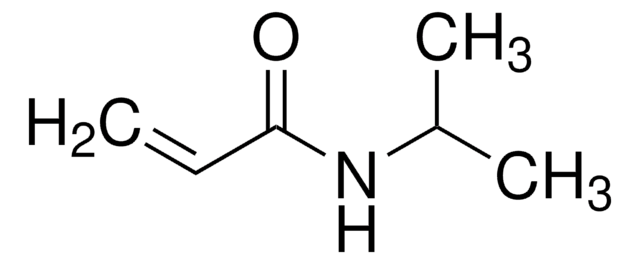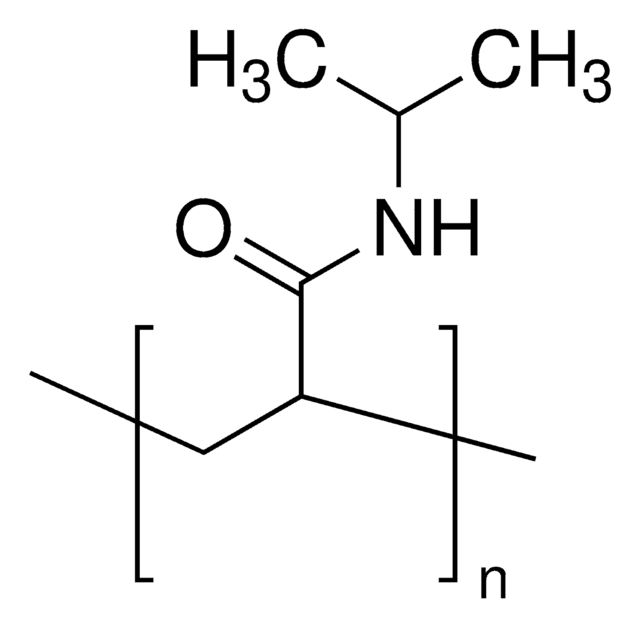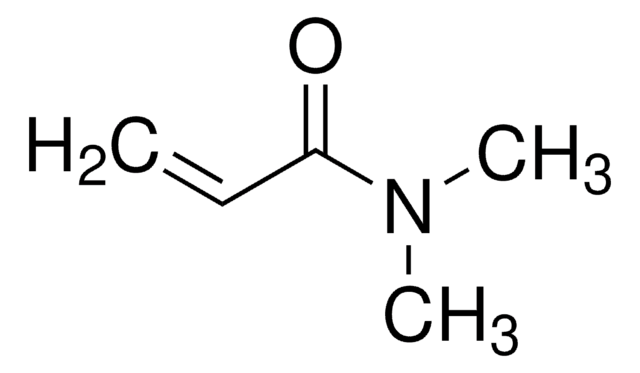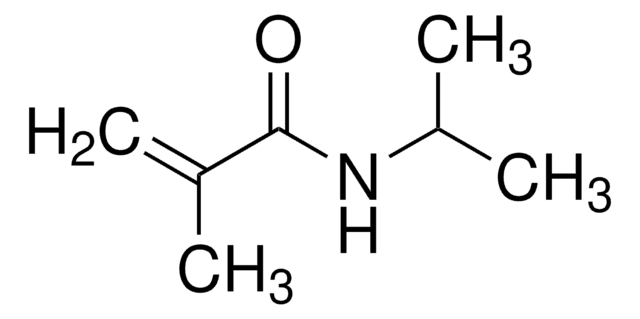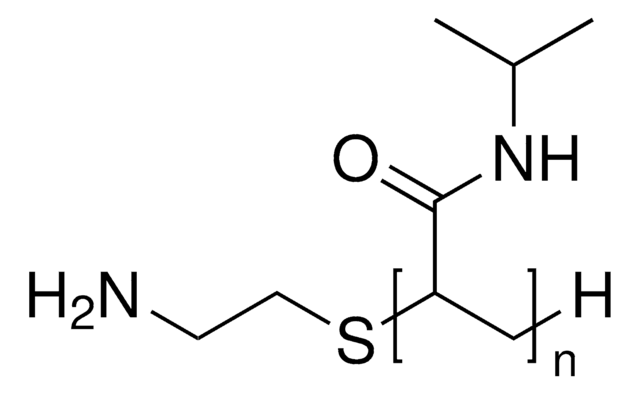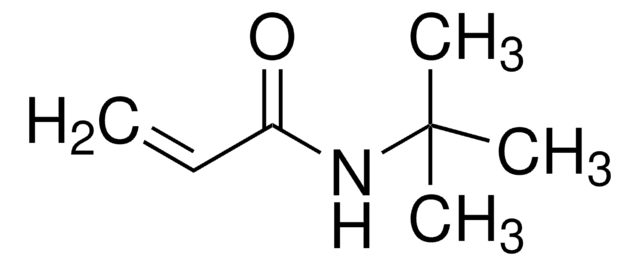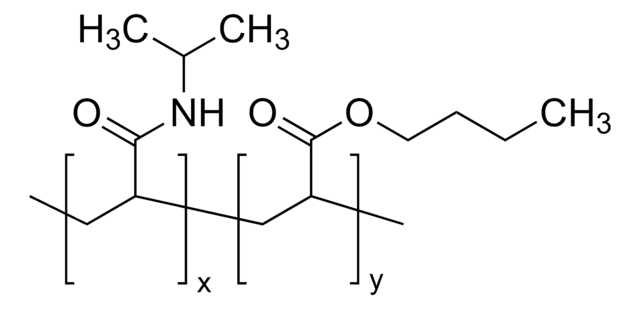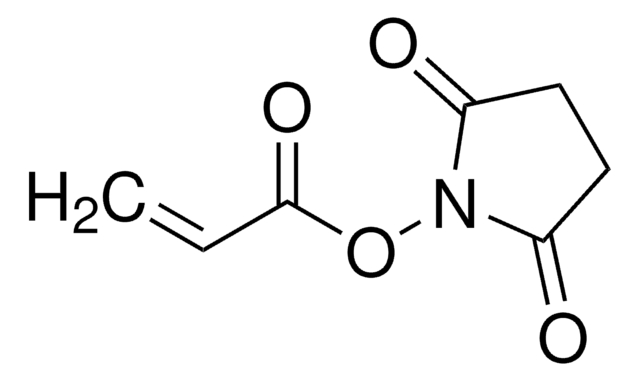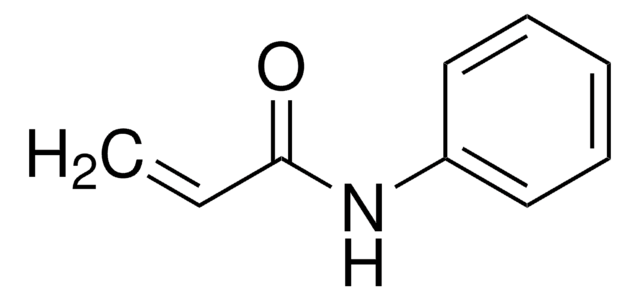About This Item
Recommended Products
Quality Level
Assay
≥99%
form
flakes
bp
89-92 °C/2 mmHg (lit.)
mp
60-63 °C (lit.)
63-67 °C
storage temp.
2-8°C
SMILES string
CC(C)NC(=O)C=C
InChI
1S/C6H11NO/c1-4-6(8)7-5(2)3/h4-5H,1H2,2-3H3,(H,7,8)
InChI key
QNILTEGFHQSKFF-UHFFFAOYSA-N
Looking for similar products? Visit Product Comparison Guide
General description
Application
N-Isopropylacrylamide can also be used as a key component in:
- The synthesis of self-powered multifunctional organic hydrogel based on poly(acrylic acid-N-isopropyl acrylamide) for flexible sensing devices.
- The development of a new type of flexible and stable gel electrolyte for aqueous Zn-MnO2 batteries.
- The preparation of poly(N-isopropylacrylamide/itaconic acid) (PNIPAM/IA) copolymeric hydrogels for drug delivery applications.
- The synthesis of poly(N-isopropylacrylamide) (PNIPAM) polymer for the development of a new class of polymer-grafted semiconductor devices.
Signal Word
Danger
Hazard Statements
Precautionary Statements
Hazard Classifications
Acute Tox. 4 Oral - Eye Dam. 1
Storage Class Code
11 - Combustible Solids
WGK
WGK 3
Choose from one of the most recent versions:
Already Own This Product?
Find documentation for the products that you have recently purchased in the Document Library.
Customers Also Viewed
Articles
Poly(N-isopropylacrylamide), or PNIPAM, is a stimuli-responsive polymer that responds to changes in pH and temperature and has a LCST around 32 C.
Tissue engineering has become a key therapeutic tool in the treatment of damaged or diseased organs and tissues, such as blood vessels and urinary bladders.
Our team of scientists has experience in all areas of research including Life Science, Material Science, Chemical Synthesis, Chromatography, Analytical and many others.
Contact Technical Service